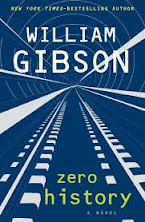Ian McDonald’s Luna trilogy is one of the past decade’s more polished bits of space opera. (I know, I know, it’s technically moon opera.) McDonald calling the storyline “game of domes”, he created a multi-faceted view to a lunar society, and the tensions and conflicts that forced power changes, conflict, and outright war through the lenses of progressive social systems. Such a rich setting, a couple of short stories have spun-off—“The Fifth Dragon” and “The Falls”. There is now a third, 2020's The Menace from Farside.
The novella tells of the adventures of Cariad Corcoran and her small clique of friends. Initially an unspoken rite of passage for the newest member of the group, the four head out of their underground biodome onto the moon’s regolith to find Neal Armstrong’s first footprint. Needing to be a bit mischievous to pull off the stunt, it isn’t long before the group’s daring turns into outright hazard—the dangers of the moon, both physical and political, show up sooner rather than later.






